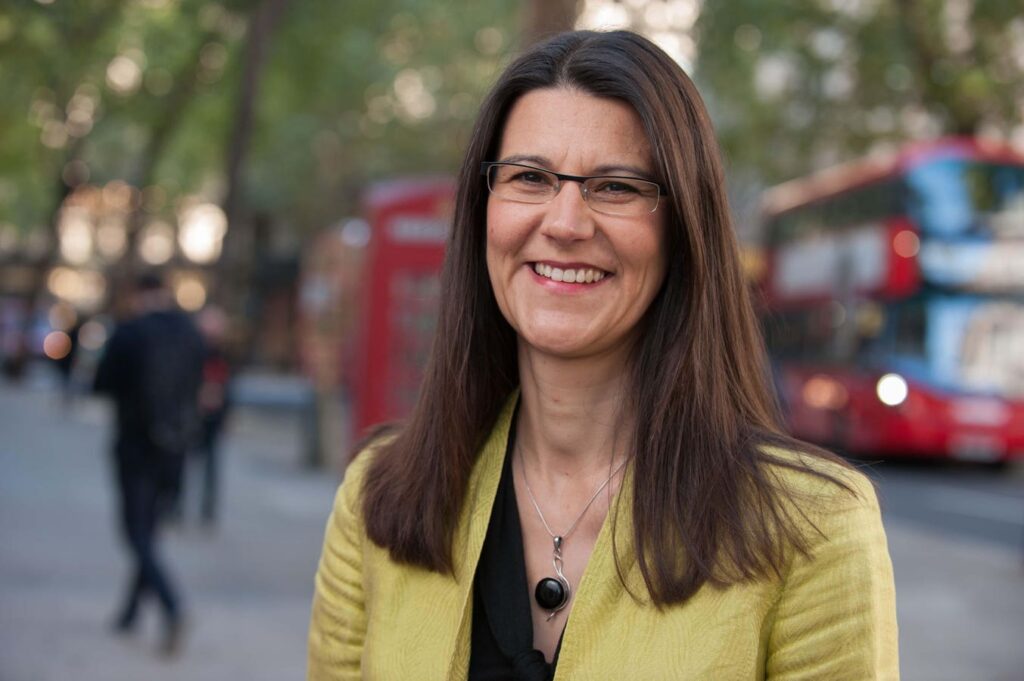Women are more likely than men to start and run “socially responsible” businesses. However, they are often held back from doing so by financial and household pressures, particularly in their middle years.
That’s the finding of new research published by the King’s Business School at King’s College London. Basing their findings on an analysis of more than 5,000 start-up entrepreneurs across 44 countries, the report’s authors argue that more needs to be done to enable women in their late thirties and early forties to pursue their social entrepreneurship ambitions.
According to the report, women are most likely to consider starting a social enterprise in their twenties and early thirties, but there is a distinct drop off in the middle years, with the low point identified as 38.6. Perhaps not surprisingly, the responsibilities associated with rearing children and looking after aging parents act as a drag on entrepreneurial ambitions for many years and it isn’t until their fifties and late sixties that women (statistically speaking) feel they can once again consider company creation.
Inclusive Entrepreneurship
So why is this important? When I spoke to Ute Stephan – a Professor of Entrepreneurship and King’s, an associate at the Centre for Sustainable Business, and one of the report’s co-authors – I began by asking her why the research had focused on social entrepreneurship in particular.
As she sees it, socially-focused businesses are particularly attractive to women. “Social enterprises offer a more inclusive form of entrepreneurship,” she says. Indeed, the research suggests that women are three times more likely to establish purpose-led businesses rather than purely commercial ventures.
However, social enterprises can also be training grounds. Commercial entrepreneurship can often seem an unwelcoming place for women. It can be difficult to raise finance and the overarching culture often veers towards the overtly masculine. However, a number of reports have shown that women are often more effective entrepreneurs than their male counterparts. A social enterprise can be an ideal vehicle to acquire and hone business skills.
“Once a woman has started one social enterprise she is more likely to go on to form another one or to found a commercial business,” says Professor Stephan.
Economically Important
Social entrepreneurship is economically important. According to a 2024 report by the World Economic Forum, social enterprises – and there are 10 million of them – generate around $2 trillion in revenues globally and support 200 million jobs.
Equally important, the WEF says they are bridging a gender divide, with one in two being led by women against the one in five figure for fully commercial enterprises.
This brings us back to the downward curve identified by Kings College. If women are more likely to step back from social entrepreneurship in their middle years because of childcare and many other commitments, there will be fewer purpose-led companies and fewer jobs. And while male entrepreneurs of the same age also have to juggle home and work responsibilities they are more likely to pursue their ambitions.
For instance, according to fast growth company intelligence provider Beauhurst, the average age for a founder in London – and many will be men – is 36, well into the middle year period. The same company also found that over 90% of London founders – again in the fast-growth sector – are aged between 20-49.
So what can be done to make it easier for women in their late thirties and early forties to start companies. Well, it’s easy to point to some of the most intractable barriers but perhaps more difficult to come up with solutions. In the case of the U.K., Professor Stephan points to the high – some would say cripping – cost of childcare and its availability. “Britain has the most expensive childcare within the OECD,” she says.
There are cultural questions to consider too. For instance, the U.K. has no shortage of programs aimed at supporting and educating prospective entrepreneurs, but Professor Stephan says these are not always appropriate for those who prioritise making a societal difference. “We should be mindful of the way we present entrepreneurship,” she says. “For instance, the available programs will often focus on commercial entrepreneurship.”
The report argues that the problems faced by female social entrepreneurs should be of concern to policymakers. “Addressing systemic barriers, such as the cost and availability of childcare and elderly care, is crucial. Without these changes, women will not be able to harness their full potential to create social value during the very years where their potential to create successful businesses is greatest,” Professor Stephan said.
Read the full article here











